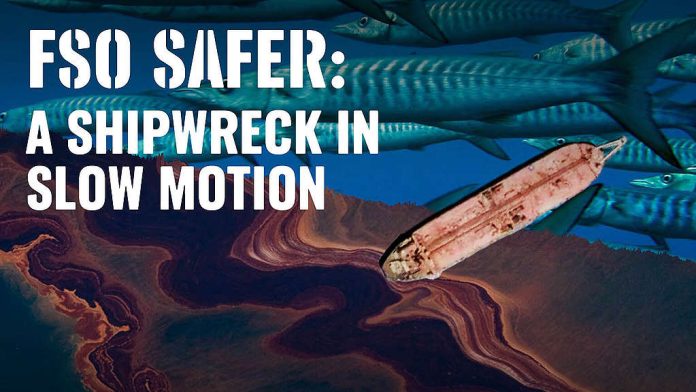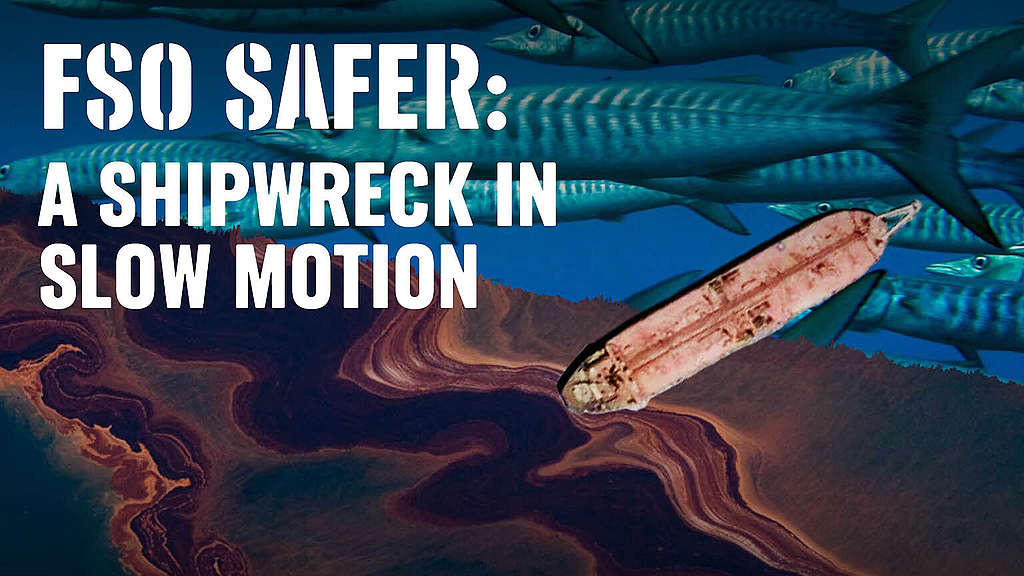
(www.MaritimeCyprus.com) Moored off the Red Sea coast of Yemen, the FSO Safer is a rapidly decaying supertanker holding four times the amount of oil the Exxon Valdez spilled. The vessel is at imminent risk of a major spill, which would create a humanitarian and ecological catastrophe centered on a country already decimated by more than seven years of war. Such a spill would result in lasting environmental damage and have profound economic costs across the region. A disruption in shipping through the Bab al-Mandab Strait and the Suez Canal would result in billions of dollars in trade losses every day.
On 11 May 2022, the Kingdom of the Netherlands and the United Nations co-hosted a pledging event in The Hague in support of the UN-coordinated plan to address the threat. Approximately US$38 million in funding was raised during this event but additional funding commitments are needed to implement the plan before it is too late. An investment of tens of millions of dollars now will save tens of billions of dollars in the future.
Background
Constructed in 1976 as a supertanker and converted a decade later to be a floating storage and offloading facility (FSO) for oil, the Safer is moored about 4.8 nautical miles off the coast of Hodeidah governorate in Yemen. The vessel holds an estimated 1.14 million barrels of light crude oil.
Production, offloading and maintenance operations on the Safer were suspended in 2015 because of the war. As a result, the Safer’s structural integrity has significantly deteriorated. All assessments indicate that the vessel is beyond repair and at imminent risk of spilling oil due to leakages or an explosion because the systems required to pump inert gas into its tanks ceased functioning in 2017.
A significant spill would surpass national capacity and resources to effectively respond.
The costs of a major oil spill
The cost of clean-up alone is estimated at US$20 billion.
A major spill would devastate fishing communities on Yemen’s Red Sea coast. Half a million people working in the fishing industry there have 1.7 million dependents. Two hundred thousand livelihoods could be instantly wiped out. Whole communities would be exposed to life-threatening toxins.
A major oil spill could close the nearby ports of Hodeidah and Salif – which are essential to bring in food, fuel and lifesaving supplies into a country where 17 million people are in need of food assistance. Urgent action is needed.
Memorandum of Understanding
An MOU was signed on 5 March 2022 with a plan that foresees the provision of a new vessel similar to the FSO Safer Tanker. It was agreed that due to the urgency to avert an oil spill , the oil will be initially transferred into a temporary vessel in the proximity of the Safer Tanker. (See right rail.) Assessments have been taken for experts and organizations in the private sector to ensure UNDP can swiftly take the necessary action for to help facilitate the transfer of the oil to the second vessel.
UNDP’s Role
Through the Peace Support Facility (PSF) and the Country Office, UNDP is supporting the UN Resident and Humanitarian Coordinator (RC/HC) in discussions with Member States and donors on the donor FSO Safer Pledging Conference. UNDP continues to be committed to use the PSF as donors’ preferred vehicle for this initiative and further support to mobilizing the necessary resources.
UNDP is committed and ready – under the leadership of the UN RC/HC – to engage in the FSO SAFER initiative with a view of preventing an oil spill with catastrophic ecological, environmental, and humanitarian consequences in the Red Sea and beyond. Nearly 12 million people’s lives and livelihoods could be directly impacted by the oil spill, fisheries depleted, and imports of commercial and humanitarian supplies severely affected if the ports of Hodeidah and Salif operations are disrupted due to the oil spill.
A Coordination Committee has been established to oversee the operational assessment and planning, along with the Implementation of the ship-to-ship operation. Options include:
- Leasing a Very Large Crude Carrier (VLCC) for five years with a minimum capacity of DWT 200,000
- Pump the oil from the SAFER to the VLCC allowing for further discussion and decisions
- FSO SAFER would be cleaned, towed away, and sold for scrap, covering part of the costs of the salvage and transfer operation
UNDP and a Dutch-funded team of experts are working on a detailed proposal for the contractual relationship and the operation, which would be funded through the PSF. UNDP’s role will be to procure the private sector services, procure the VLCC and help facilitate an overall enabling environment for this operation under the leadership of the Special Envoy and the RC/HC.
Contingency Plan
UNDP has worked with local authorities and government officials to develop a contingency plan to respond to any possible disastrous leak from the Safer Tanker. UNDP has worked closely with the UN Environment Programme (UNEP), the International Maritime Organization (IMO), as well as with expertise drawn from the Regional Organization for the Conservation of the Environment of the Red Sea and Gulf of Aden (PERSGA) to develop this plan.
Source: IMO














